Sprawl

Planning for Proximity, for the Climate’s Sake
A new global platform will help the world identify and encourage opportunities for more proximity in the built environment—development patterns that can help reduce sources of greenhouse gas emissions and other forms of pollution if built well.
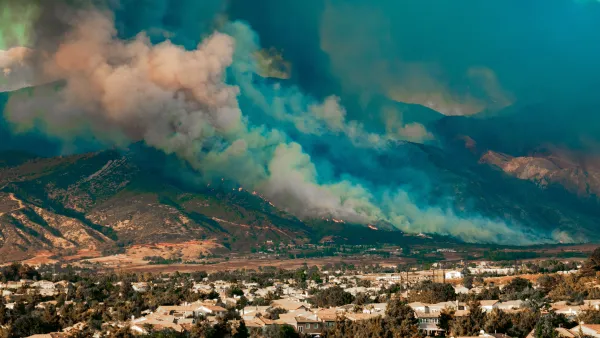
Home Insurers Are Fleeing California
Homeowners in the state are finding it increasingly difficult to secure insurance policies thanks to the growing risks of wildfire, drought, and other climate threats.

Lack of Multi-Family Zones Contributes to Nashville’s High Housing Costs, Study Says
Nashville and surrounding communities allow for a relatively small amount of multi-family housing, according to a new zoning atlas of Middle Tennessee. A regionally focused nonprofit is using the atlas to push for zoning reforms.
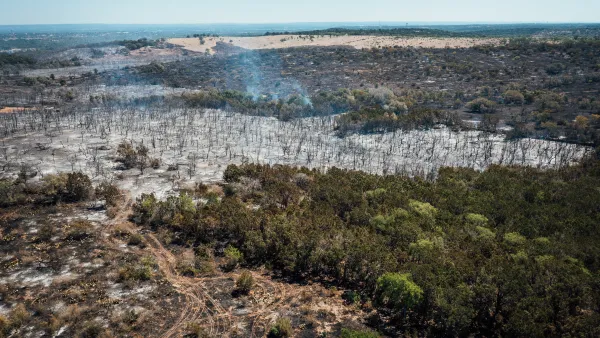
As Central Texas Population Grows, So Does Fire Risk
Sprawl in and around Austin is contributing to growing wildfire risks, and local officials worry about a lack of public awareness of the issue.

Austin as a Model for Parking Reform
The Texas capital’s new parking law signals a shift in thinking about the relationship between land use, transportation, and housing affordability.
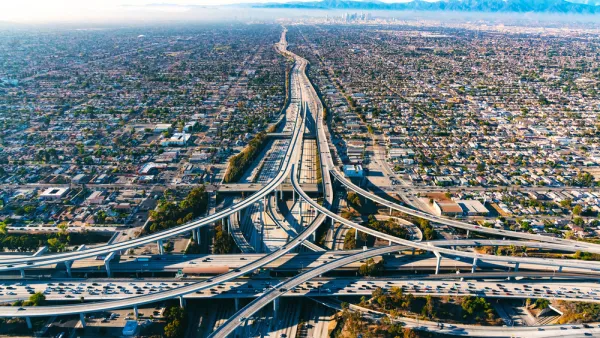
Essay: Will America Ever Change its Urban Patterns?
If there has ever been a good time to change our urban patterns, the time is now.
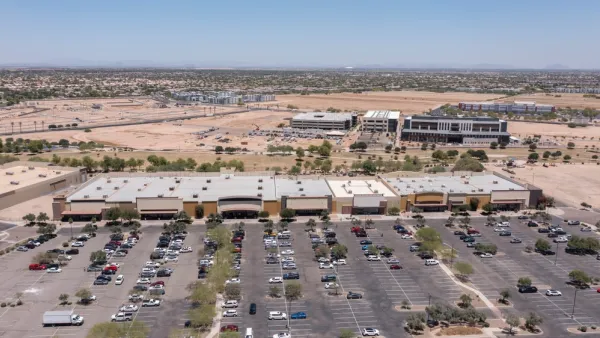
The Tragedy of Parking
Parking minimums and other zoning laws have made American cities untenable for any other type of transportation. It’s time we find a new way to zone our cities.
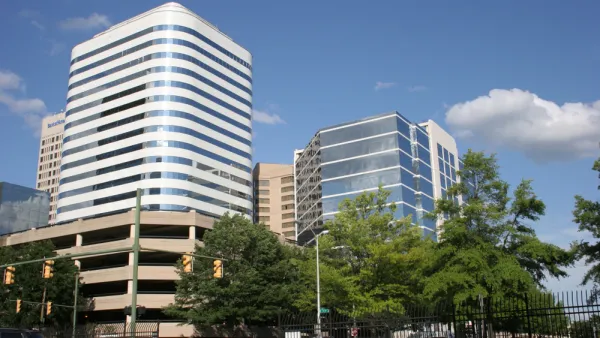
Richmond Poised to Repeal Parking Minimums
The city’s planning commission recommended that the city council eliminate parking mandates that limit housing production and increase housing costs.

Maps: How Much of Your City is Parking?
The percentage of land dedicated to parking in the central districts of major U.S. cities ranges from 4 percent to as much as 42 percent.

Parking Reform Gains Momentum
More cities and states around the country are recognizing the value of eliminating parking requirements.
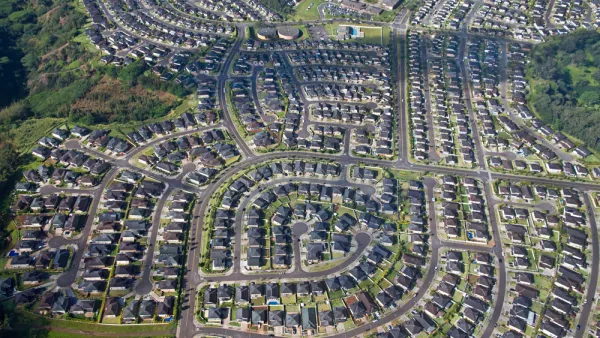
Sprawl and Democracy
One common defense of pro-sprawl government policies is that government reflects the will of the people. But is this really true?
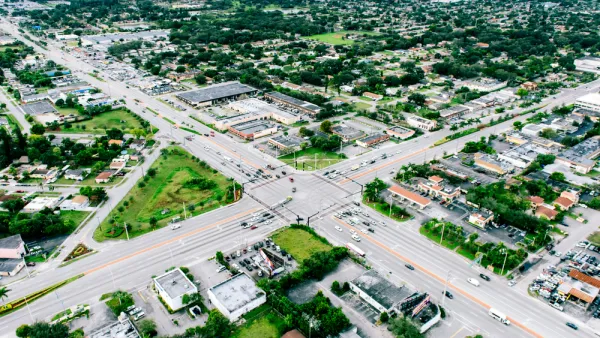
Florida Law Would Change the Definition of ‘Sprawl’
One quick way to build sprawl.
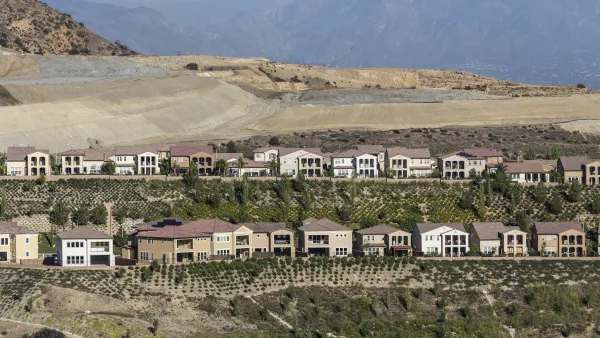
YIMBYs and Environmentalists Team Up at Last
The politics of development in California achieved another significant milestone recently, when a YIMBY organization and an environmental advocacy organization collaborated on new land use legislation to be considered by the State Legislature.
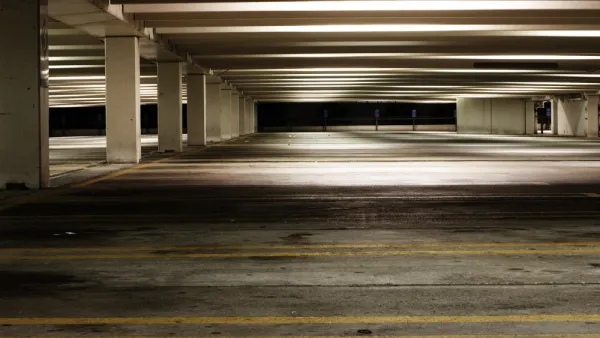
Rethinking the Role of Parking in the American City
In cities big and small, the tide is turning against sprawling parking lots, car-centric development, and minimum parking mandates.

Congestion Growing in Sunbelt Cities
Cities with rapidly growing populations and inadequate public transit systems are seeing more gridlock despite changes in commuting patterns and the rise of remote work.
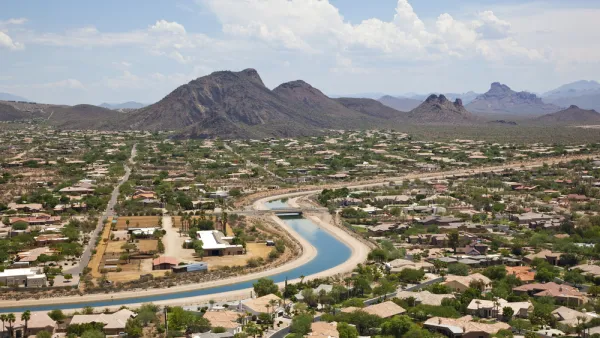
The Water Crisis Comes Home to Roost in Arizona
Due in part to the state’s history of ‘wildcat’ real estate developments, some communities are losing access to water sources as cities and water agencies look for ways to conserve shrinking water supplies.
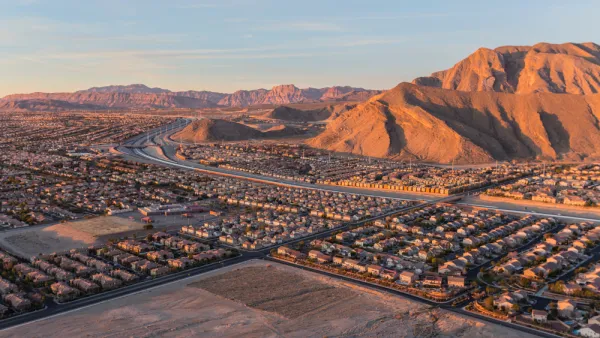
Zoning Has Support for Sprawl: Subdivision, Covenants, and Mortgages
Zoning codes are not the only kind of land use control that has built the U.S. residential market on the suburban model for more than a century, according to a recent article in The Urbanist.
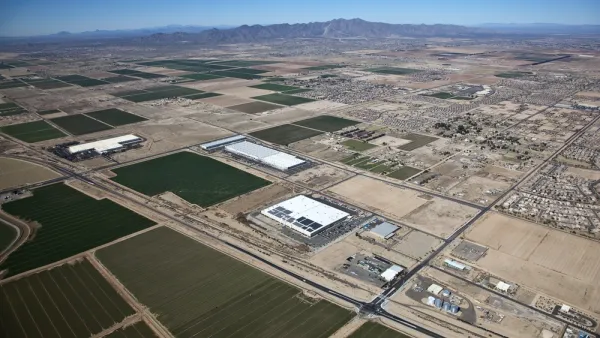
Arizona Tapping Groundwater to Fuel Suburban Growth
Critics say Arizona’s growth patterns are unsustainable and dangerous, given the depleted Colorado River and the state’s deepening reliance on groundwater.
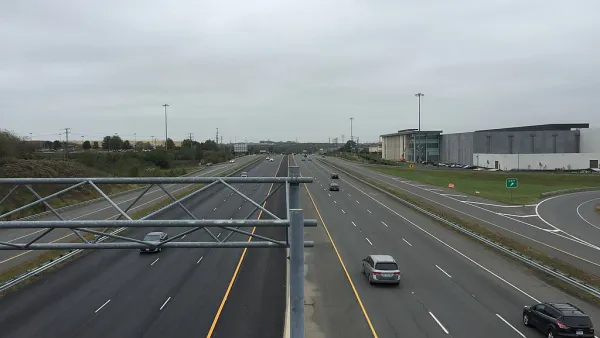
Causes and Effects of Widespread Data Center Development
While it’s unlikely to expect local and state governments to insist that data center developments locate somewhere else, specific policy steps can ensure a more positive impact for communities.

Is Sprawl the Only Answer to High Housing Costs?
A recent article argues that sprawl is the solution to high housing costs, pointing out that low-density Sunbelt cities are more affordable than some more compact metro areas. What's wrong with this argument?
Pagination
Urban Design for Planners 1: Software Tools
This six-course series explores essential urban design concepts using open source software and equips planners with the tools they need to participate fully in the urban design process.
Planning for Universal Design
Learn the tools for implementing Universal Design in planning regulations.
EMC Planning Group, Inc.
Planetizen
Planetizen
Mpact (formerly Rail~Volution)
Great Falls Development Authority, Inc.
HUDs Office of Policy Development and Research
NYU Wagner Graduate School of Public Service


































